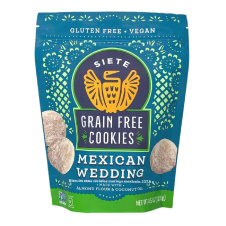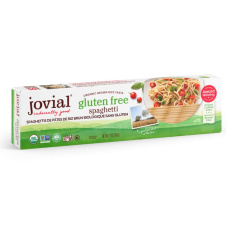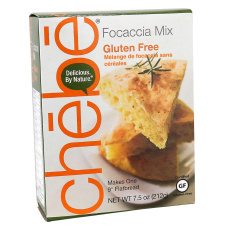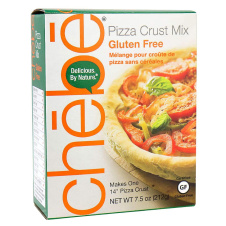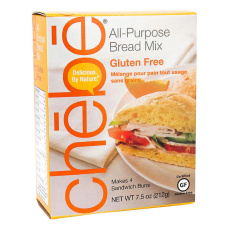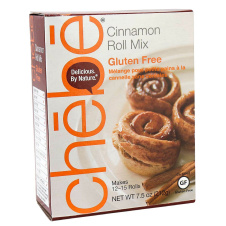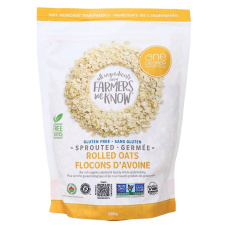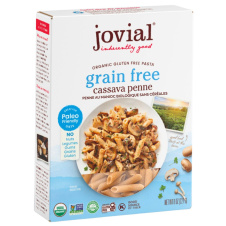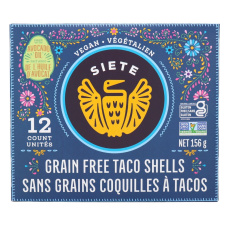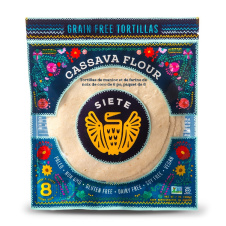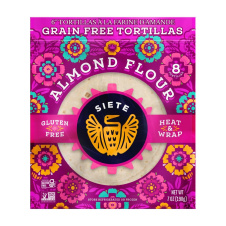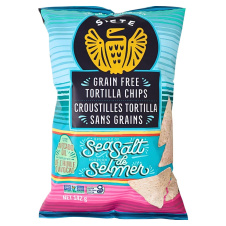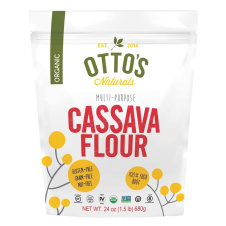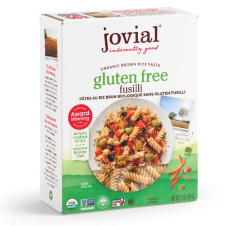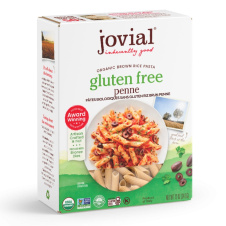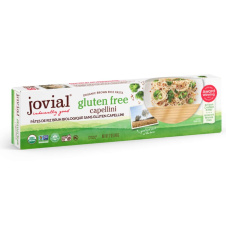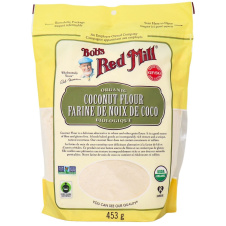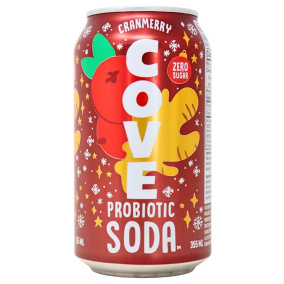
Is a Grain-Free Diet the Same as a Gluten-Free Diet?
The gluten-free Diet or the celiac diet has gained popularity in recent years. More than likely, you’ve heard about it or seen it on the package of many foods while perusing the grocery store or online stores. But, have you heard of the grain-free diet? The grain-free diet has captured the interest of many, which leaves you wondering, is a gluten-free diet the same as a grain-free diet?
The answer is, not quite. There are a few differences between a gluten-free diet and a grain-free diet, and these differences can be the deciding factor of which diet you decide is best for you. But, before deciding which diet is right for you, read along to find out the differences between a gluten-free diet and a grain-free diet.
What is a Gluten-Free Diet?
The gluten-free diet is quite common. At Natura Market, you’ve heard us talk about the Gluten-Free Diet before, but let’s refresh your memory! Here’s your crash course on the Gluten-Free Diet, or the Celiac Diet.
Gluten is a protein found in many grains, including wheat, barely, rye, spelt and yeast. Gluten gives bread products the chewy texture and elasticity. Many traditional grain-based food items, such as pizza, pasta, bread, bagels, and cereals, contain wheat flour or yeast, meaning that they also contain gluten.
A gluten-free diet is not intended so much to be a temporary diet, but a lifestyle change or long term modification, with a person permanently eliminating all gluten from their diet. There are a few reasons why someone would want to begin a gluten-free lifestyle and completely eliminate gluten from their diet. The reasons why someone may choose to go gluten-free is because:
- They have a gluten sensitivity or gluten intolerance.
- They have a wheat allergy.
- They have Celiac Disease, which is a genetic autoimmune disease that causes an immune reaction when gluten is consumed.
Following a gluten-free diet does not mean that you are cured of your gluten sensitivity, wheat allergy or of Celiac Disease. The main purpose of a gluten-free diet is to reduce the side effects and reactions caused by consuming gluten. A gluten-free diet is intended for those who have a sensitivity or reaction to the gluten found in certain grains. These grains with gluten should be avoided to reduce symptoms and make life more enjoyable.
It is important to note that while there are individuals who choose to go gluten-free as a way to lose weight, that this is not the intended purpose of the diet. It is not meant to be a temporary diet or a temporary weight loss fix, however weight loss may be a result of cutting out many grains with gluten from your diet and the accompanying calories from carbohydrates.
A gluten-free diet or gluten-free lifestyle does not mean that you have to totally eliminate all grains from your diet, just grains that contain gluten. This means that grains, flours and starches that naturally do not contain gluten can be consumed. Grains that do not include gluten include quinoa, rice, corn, oats, millet, buckwheat and teff, to name a few. With a gluten-free lifestyle, you can enjoy these grains as a part of your diet, as they do not contain gluten.
When shopping for gluten-free food items, it is important to look for items that are labelled as “Gluten-Free” or have a Gluten-Free Certification label on the package. Choosing certified gluten-free products is the best way to ensure that you are not consuming anything that may contain any gluten, thus ensuring that you do not become sick.
For all of your gluten-free shopping needs, Natura Market offers a wide selection of gluten-free products to suit each and every need and craving!
What is a Grain-Free Diet?
You may be wondering what does a grain-free diet entail and why would someone choose to follow a grain-free lifestyle? Well, from the name it’s quite simple, a grain-free diet requires you to avoid and eliminate all grains from your diet. We’ve covered the ins and outs of the grain-free diet here on our blog, but here’s a quick summary for you!
A grain-free diet involves the elimination of all grains from your diet. The following are recognized as grains by Natura Market, and should be avoided while following a grain-free diet: wheat, rye, barley, spelt, millet, rice, oats, sprouted grains, triticale, amaranth, sorghum and dried corn.
A grain-free diet is still a fairly new diet and has not been as widely studied as the gluten-free diet, however it is becoming increasingly popular with regards to the positive impacts that it can have for those living with a variety of health conditions. While choosing to go grain-free does not cure you of these diseases or health conditions, a grain-free diet may alleviate side effects, thus making living with the disease a little easier. A grain-free diet might help alleviate the following:
- Arthritis
- Lupus
- Multiple sclerosis
- Crohn’s disease
- Fibromyalgia
- Ulcerative colitis
- Diabetes
- Irritable bowel syndrome
- Graves disease
- Pemphigus vulgaris
- Antiphospholipid syndrome
A grain-free diet can improve any digestive issues, relieve inflammation, reduce bloating and discomfort, and to help to improve gut health. In these cases, going grain-free would be a permanent, lifestyle change in order to improve your overall health and wellbeing. However, a grain-free diet can also be a temporary strategy to lose weight, feel more energized, or reduce the side effects of mental health conditions, such as depression.
When shopping for grain-free food products, it is important to look for items that are classified or labelled as “Grain-Free”. If you are looking for food items that are traditionally made using grains, like pastas and bread, opt for alternatives that contain any of the following: almond flour, coconut flour, chickpea flour, and cassava flour, to name a few. These flours are great substitutions for wheat or grain-based flours, provide excellent texture and more importantly are grain-free! They are available in pasta, pizza crust mix, and cookies. For more delicious grain-free products to suit all of your snacking and cooking needs, check out Natura Markets Grain-Free section!
How is a Gluten-Free Diet and a Grain-Free the same?
So, now that we know what both a Gluten-Free Diet and a Grain-Free Diet entail, it’s time to explain in what ways they are the same! Both diets are considered restriction diets or elimination diets, with the intentions of eliminating or restricting yourself from certain foods to obtain a certain result. They both involve the elimination of grains, however a gluten-free diet requires only eliminating grains with gluten, whereas a grain-free diet requires the elimination of all grains. Both a gluten-free diet and a grain-free diet are considered a lifestyle change, as the intentions of both of these diets is to be a long term strategy to alleviate the side effects of a health condition. Both diets are aimed at improving your health and helping to eliminate side effects of health conditions. Both diets do not heal the disease or condition, both just make it easier to live a more enjoyable life.
How is a Gluten-Free Diet and a Grain-Free Diet Different?
So, here’s the meat and potatoes - the question you’ve probably been wondering, what are the differences between a Gluten-Free Diet and a Grain-Free Diet? The main difference is that as mentioned, a gluten-free diet requires eliminating only grains with gluten from your diet (you can eat grains that do not contain gluten, such as quinoa, rice or oats), whereas a grain-free diet requires eliminating all grains from your diet. It is important to keep in mind that gluten-free focuses on a sensitivity or an allergy such as celiac disease, gluten intolerance or a wheat allergy, whereas a grain-free diet could potentially reduce symptoms of a variety of autoimmune diseases. The gluten-free diet has been around since the 1940s and is more researched and popular. There are many books on it and resources available. The grain-free diet is more new and has not been as widely studied. An individual may choose to follow a grain-free diet to reduce the side effects of a variety of health conditions, however a traditional gluten-free diet is intended for those who have some sort of intolerance to gluten. A grain-free diet can potentially be a temporary diet to improve an aspect of one's health (such as their mental wellbeing or to lose weight), whereas a gluten-free diet is intended to be a lifestyle change.
Gluten-Free Diet or Grain-Free Diet: Which Diet is Better?
Neither diet is better than the other, as they both have unique, specific goals based on specific reasons and intentions. Deciding between a gluten-free diet and a grain-free diet is pertainable to the individual and their own specific health conditions and needs. An individuals needs will determine which diet is better fitted for their individual lifestyle and will be more effective in improving their health.
How Do I Know If a Gluten-Free Diet or a Grain-Free Diet is Right for Me?
It is good to remember that choosing between a gluten-free diet and a grain-free diet depends on your specific health concerns. Eliminating gluten grains is recommended if you have celiac disease, a wheat allergy or a gluten intolerance. Restricting grains from your diet is a tactic to improve the wellbeing of those with an autoimmune disorder. As always, when making a decision about your health and about a new diet, it is always important to consult with your doctor, registered dietitian, or naturopath first. Together, you can decide what diet is best suited for your specific needs. When trying a new diet, it is always a good idea to keep a journal and track what you ate each day and how you are feeling, so that you can better determine if the diet is addressing your concerns and effectively working for you.
So to wrap things up, while there may be some similarities, a grain-free diet is not the same as a gluten-free diet. A gluten-free diet is best for those with a gluten intolerance, wheat allergy or celiac disease; It is intended for those who have a sensitivity and reaction to the gluten found in certain grains. These grains with gluten should be avoided to help alleviate symptoms and minimize reactions. Whereas, someone may choose to eliminate grains or begin a grain-free diet if they have an autoimmune condition, such as arthritis, diabetes, lupus, or crohn's disease. The intention of a grain-free diet is to help reduce the symptoms of these health conditions, therefore making life more enjoyable for the individual. A person may also choose to follow a grain-free diet if they are looking to lose weight, be more energized or improve their mental health.
Whether you are looking to start a gluten-free diet or a grain-free diet, at Natura Market we have everything you need to enjoy all of the foods you love, no matter your diet restrictions! We make it easy to shop for your specific diet - and have carefully selected each and every product in the category to ensure you’re getting only the best. Shop our grain-free and gluten-free sections now!



